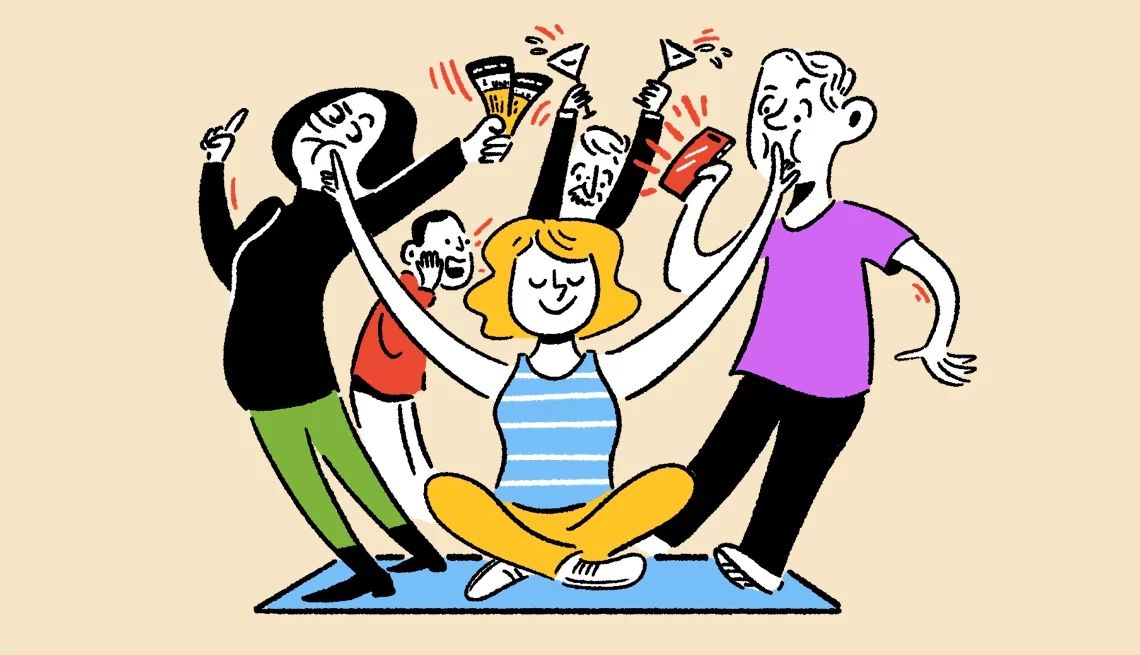AARP Hearing Center


Remember the fear of missing out, that anxious sensation that someone, somewhere, was having more fun than you? Well, meet its inverse: the joy of missing out, a.k.a. JOMO. You feel it every time you’re more relieved than disappointed when your social plans fall through. A free evening, all to yourself? Bring it on!
“JOMO is crucial as you reach your 50s,” according to Tali Gazit, a psychologist who studies social media addictions. “It isn’t just about skipping obligations; it’s about consciously choosing how to spend your time and energy in ways that nurture your well-being and happiness.” In fact, shifting your social priorities can even improve your health, research shows. Read on to learn how to boost your JOMO in several common scenarios.
Rock concert conundrum
What it is: Your favorite band is coming to town, but the show won’t end till way past your bedtime.
What to do: Before buying tickets, clinical psychologist Marni Amsellem suggests, ask yourself whether it’s something you really want to do. “Listening to our needs is critical for nurturing our emotional health, which is a key component of healthy aging,” says Amsellem. If you do really want to go, great! But there’s no shame in leaving before it’s over. In your 50s, losing sleep on a regular basis can put you at risk of a variety of chronic conditions, including diabetes and high blood pressure.
The Facebook blahs
What it is: You spend a lot of time on social media, but it leaves you feeling depleted and vaguely sad.
What to do: Limit your exposure. Young people aren’t the only ones who get anxiety from comparing their real lives to their friends’ curated social media feeds. A recent study of middle-aged adults found that they, too, can feel depressed after excessive Facebook scrolling. Try setting a time limit of 30 minutes per day for checking social media, a practice that can reduce anxiety, depression and fear, according to a 2023 study.






























































You Might Also Like
25 Things to Throw Away Right Now
Declutter. Have more space. Feel more freeAsk Dr. Adam: How Can I Boost My Immune System?
Help strengthen your body’s defenses against illness this winter25 Great Ways to Build Healthy Habits
These tips can help create changes that positively impact your well-being for years to comeRecommended for You